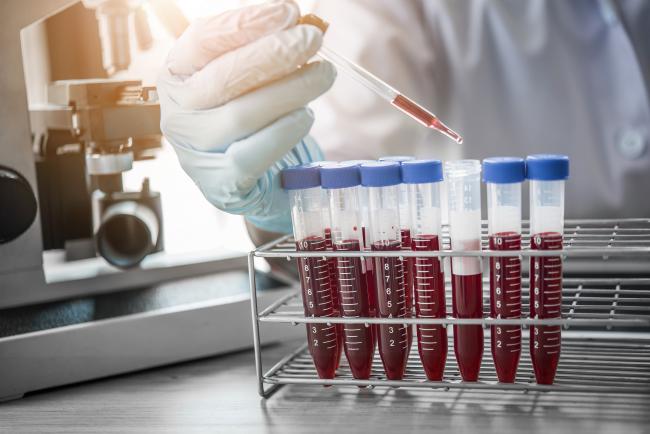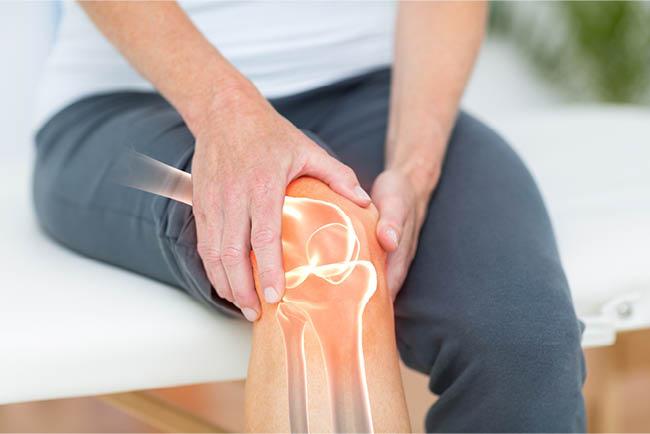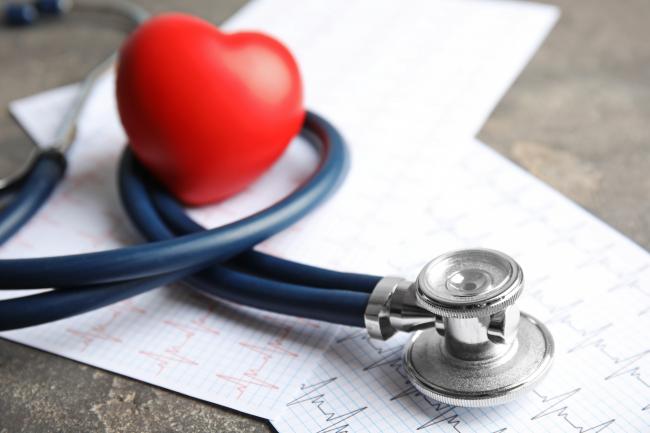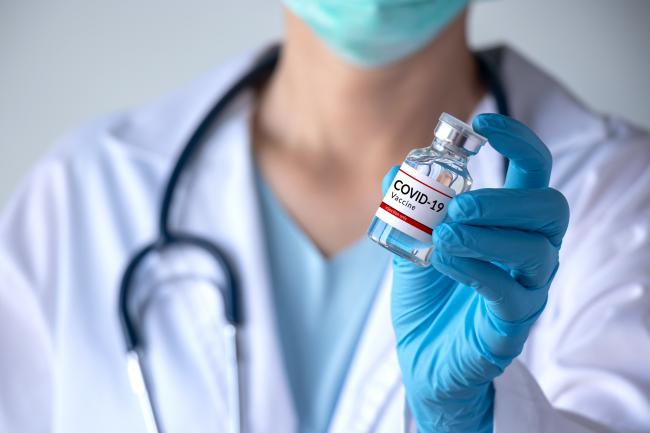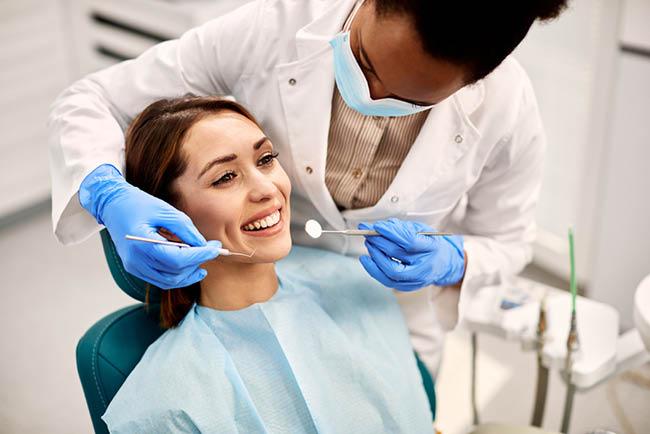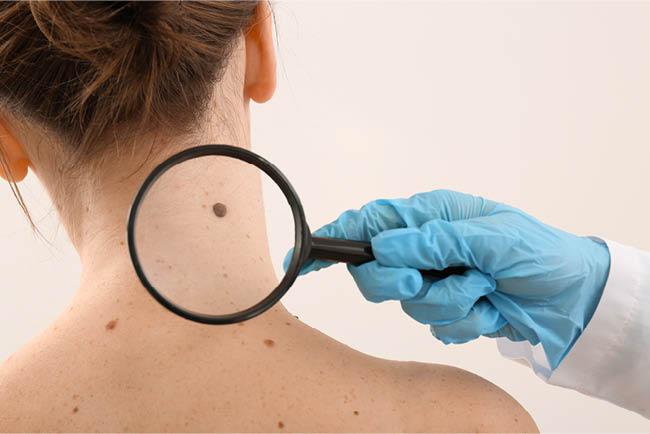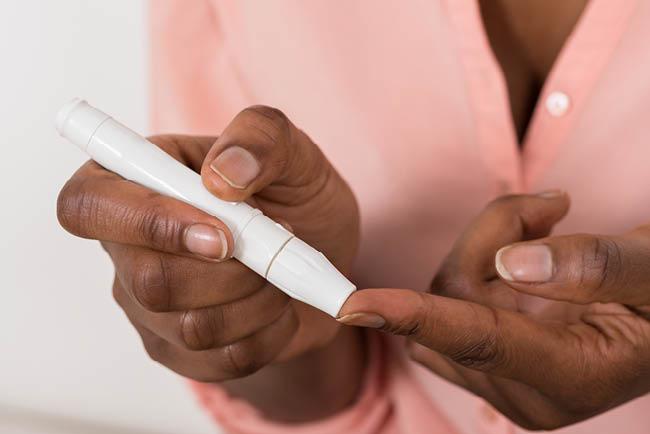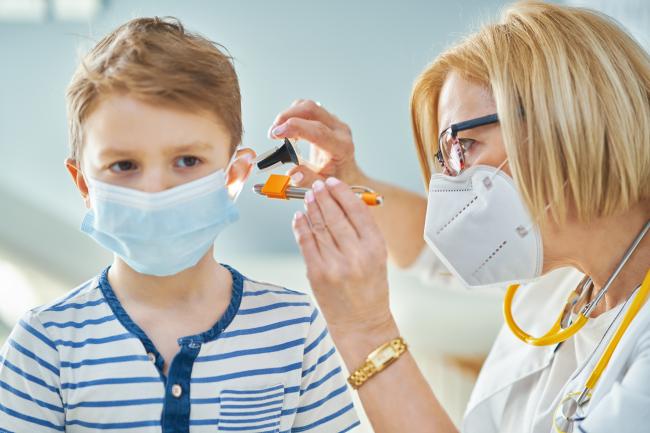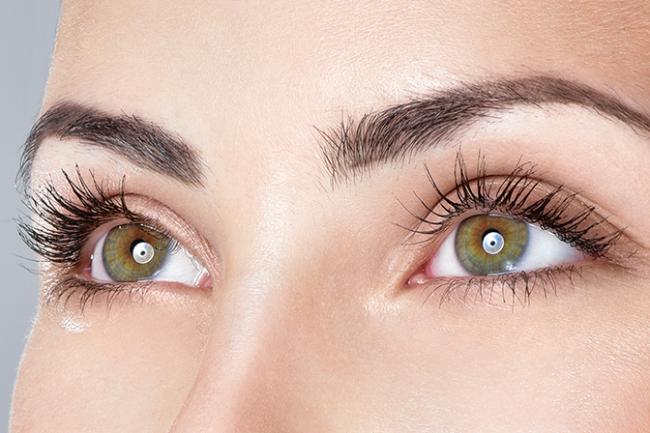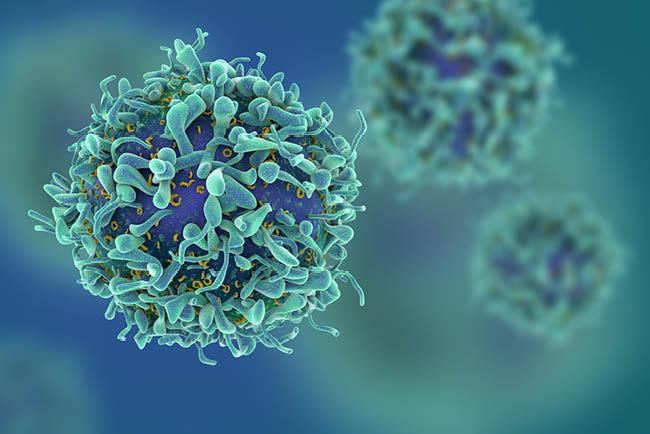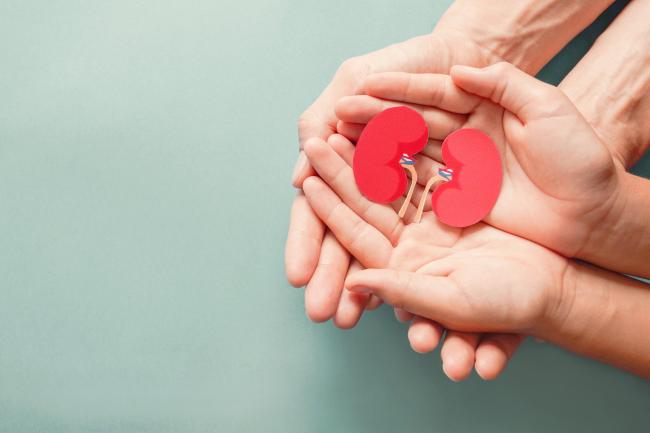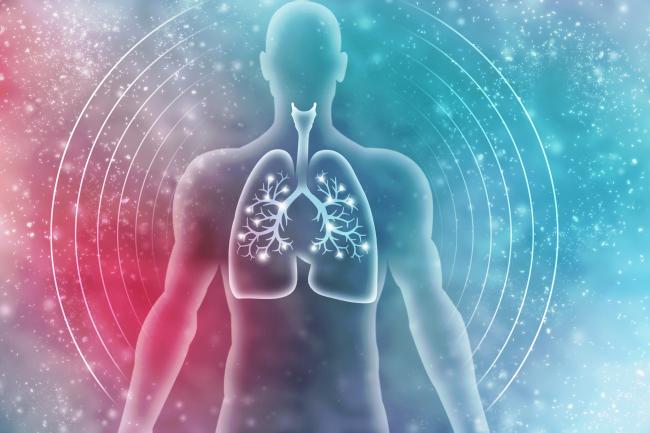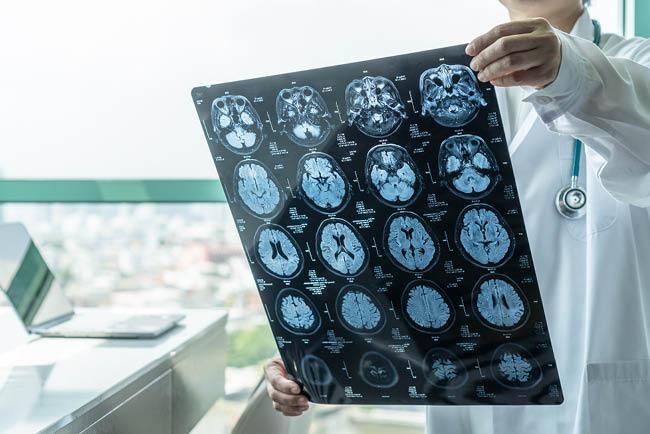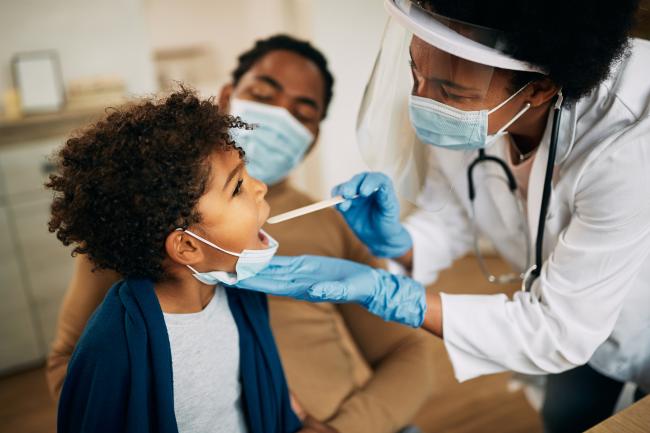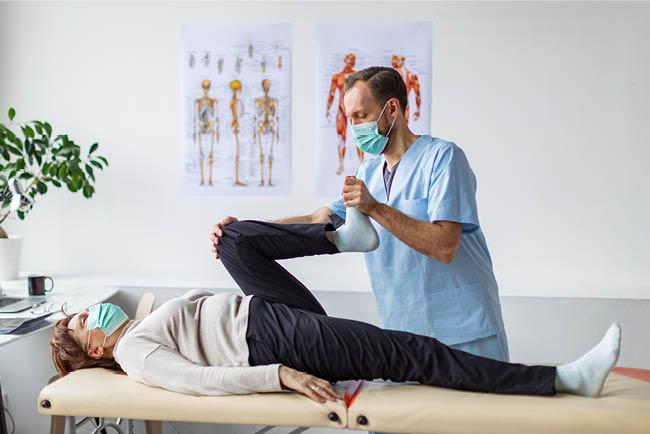Search Studies
Research studies are looking for volunteers just like you. Both healthy volunteers and participants with specific health conditions are needed to help answer important questions impacting the health of our friends and family. Join us to improve the health of others.
-
Adults Helping Adults With Immune Diseases
Official Title Creation of a pediatric healthy control repository for clinical diagnostic immunology test development and validationPurpose
A test for healthy adults from 19 - 75 years old to develop normal values for interpretation of immunological tests in adults with disorders of the immune system.
Voluntary participation involves blood draw at Nationwide Children's hospital. Qualified participants would be eligible to provide a sample every 2 months (not more than 6 times per year).
Could this study be right for you?
If you are:
- An adult 19 years of age or older
- Healthy with no significant medical diagnoses
- Have no chronic conditions that can affect results of immunological studies
- Not on any medication known to alter immune status or function
- Have not undergone recent surgery, chemotherapy, radiation or transplantation
- Non-smoker
- Body mass index (BMI) in healthy range
- No infections within last 2 months
Age Range
19 and up -
Children Helping Children With Immune Diseases
Official Title Creation of a pediatric healthy control repository for clinical diagnostic immunology test development and validationPurpose
This study uses healthy children from newborns to 18 years old to help understand immune disorders. This study will compare healthy children and teens to children and teens with disorders of the immune system.
Volunteers will visit Nationwide Children's Hospital (NCH) for a blood draw either one time or not more than once every three months.
Could this study be right for you?
If your child is:
- Newborn to 18 years of age
- Healthy with no significant medical diagnoses
- Has no chronic medical conditions that can affect results of immunological studies
- Is not on any medication known to alter immune status or function
- Has not undergone recent surgery, chemotherapy, radiation or transplantation
- Has had no infections within the last 2 months
-
Cognition and Brain Circuitry
Official Title Cognition and Brain CircuitryPurpose
The purpose of the study is to look at how our brain networks interact for different mental functions and how individual differences in brain structure and function determines individual differences in behavior. During this study, we use magnetic resonance imaging methods: functional magnetic resonance imaging (fMRI) and diffusion weighted imaging (DWI). Functional MRI (fMRI) and DWI are typical imaging methods that use a strong magnetic field and radio waves to make pictures of your body. The total length of the study will be between 3 and 4 hours, including up to 2 hours outside the MRI scanner and 2 hours in the scanner.
Could this study be right for you?
- Healthy adults between 18-40 years of age
- Have normal or corrected-to-normal vision
Age Range
18 and up -
Evaluating a Mobile Health App for Cardio-Oncology Patients
Official Title Mobile Health App as a Cardiotoxicity Symptom Logging Tool: Feasibility Pilot StudyPurpose
To evaluate the cardio-oncology patient population’s experience with using smart-phone technology as a part of self-management with their care through features such as symptom logging and education. Eligible patients will be asked to participate in a 30-minute virtual interview and/or a 60-minute virtual design or usability session to discuss their thoughts on a mobile app for cardio-oncology patients.
Could this study be right for you?
- English-speaking
- Prior cancer diagnosis
- Currently undergoing a cancer regimen that includes a targeted, biologic, radiation, and/or immune-based therapy (e.g., TKIs and/or ICIs).
- No pregnant females
- No prisoners
Age Range
18 and up -
Immune Response in Adolescents
Official Title Immune Response in AdolescentsPurpose
Our goal in this study is to learn more about the immune system in adolescence and early adulthood. We are looking to enroll healthy children ages 12-18 years old.
Enrollment in the study will require 1 visit to Nationwide Children’s Hospital involving a blood draw and 2 nasal swabs.
The visit will take approximately 1- 1 ½ hour(s). We ask that the family brings a copy of the child’s immunization record to the visit.Could this study be right for you?
Children will need to meet the following criteria to be in the study:
Inclusion Criteria:
- Parents/Legal guardian able and willing to sign informed consent and the child is willing to sign assent form for participation. All forms are in English.
- Healthy children, age 12-18 years old
Exclusion Criteria:
- Any chronic or congenital conditions that may potentially affect immune responses
- Cough, congestion, fever, rhinorrhea, rash and any other symptoms indicative of infection within the 2 weeks prior to enrollment sampling
- HIV, AIDS or other immunodeficiencies or any other condition that may affect their immune system
- Use of systemic steroids within 2 weeks prior to enrollment
- Immunization(s) within the last 30 days
Age Range
12 and up -
Lewy Bodies Study for Those with Sleep Behavior Disorders
Official Title A Phase 2, double-blind, randomized, placebo-controlled study of nelotanserin versus placebo in patients with dementia with Lewy bodies (DLB) experiencing REM sleep behaviors (RBD)Purpose
The purpose of this study is to evaluate the safety of the study drug called nelotanserin and to assess the effects of nelotanserin in those experiencing frequent REM sleep behavior disorders due to dementia with Lewy bodies. Nelotanserin (study drug) is an investigational product, which means that it has not been approved by the U.S. Food and Drug Administration (FDA) or the government health agencies of any other countries.
Could this study be right for you?
- Age: 50-85
- Diagnosis: probable dementia with Lewy bodies or Parkinson's disease dementia
- AND diagnosis of REM sleep behavior disorder (RBD) with frequent RBD episodes
- Must have a study partner willing to serve as a collateral informant for study assessments
- MMSE Score: greater than or equal to 18 (Mini Mental State Examination score to be explained by the coordinator)
Age Range
50 and up -
Perinatal Arterial Stroke: The I-ACQUIRE Study
Official Title Perinatal Arterial Stroke: The I-ACQUIRE StudyPurpose
Children who suffered a stroke before or shortly after being born that was caused by blockage of blood flow in an artery, it often results in the child showing some weakness on one side of their body.
With this study, we want to find out if a type of therapy may help children who have weakness on one side of their body due to perinatal arterial ischemic stroke, learn how to better use their weaker arm.
All children will be in the study for about 13 - 15 months. Some children may be in the study for a longer period, depending on which treatment they receive during Phase 1 of the study. The I-ACQUIRE therapy involves fun learning and play, self-help activities, and manipulating interesting toys and objects.
Could this study be right for you?
- Your child must be between the ages of 8 and 36 months old when beginning this study
- Your child must have suffered a perinatal arterial ischemic stroke
- Upper limb weakness
- Parents must be able to participate at least 1x/week for therapy and 40-60 minutes/day at home
-
Registry for Shoulder Surgery Outcomes
Official Title Shoulder Surgery Outcomes RegistryPurpose
This registry will collect outcomes data of patients undergoing shoulder surgery with Dr. Jonathan Barlow or Dr. Julie Bishop. The purpose of this registry is to provide a way to collect and store data for patients undergoing shoulder surgery to support the conduct of future research in an effort to improve patient outcomes.
Could this study be right for you?
- A patient undergoing surgery with Dr Jonathan Barlow or Dr Julie Bishop (will be asked to enroll once the clinical decision has been made to proceed with surgery)
- 18 to 89 years old
- Able to provide consent
Age Range
18 and up -
The ARCADIA Study -- A medication study for prevention of recurrent ischemic stroke
Official Title AtRial Cardiopathy and Antithrombotic Drugs In prevention After cryptogenic stroke (ARCADIA)Purpose
The purpose of this research study is to compare the effects (good and bad) of apixaban with the effects (good and bad) of aspirin in patients with unexplained strokes and atrial cardiopathy to see which is better at prevention of future strokes.
Could this study be right for you?
- You are at least 45 years old
- Clinical diagnosis of ischemic stroke* of unknown cause (ESUS or cryptogenic) in the last 120 days
- Underwent an echocardiogram as part of your stroke work up
- No history of atrial fibrillation (irregular heartbeat)
- No known allergy or intolerance to aspirin or apixaban
*An “ischemic” stroke is an injury to the brain caused by a blocked blood vessel supplying the brain.
Age Range
45 and up -
The Ohio State Lupus, Vasculitis and Glomerulonephritis Registry
Official Title The Ohio State Lupus, Vasculitis and Glomerulonephritis RegistryPurpose
The purpose of the OSU Lupus and Vasculitis Registry is to obtain clinical and laboratory information about lupus and vasculitis and glomerulonephritis.
Could this study be right for you?
Patients at the Ohio State University Rheumatology and Lupus Clinic with one of the following diagnoses who are ages 18 years of age and older:
- Systemic lupus erythematosus
- Discoid lupus
- Mixed connective tissue disorder
- Undifferentiated connective tissue disorder
- Wegener’s granulomatosus
- Microscopic polyangiitis
- Henoch-Schonlien Purpura
- Takayasu’s arteritis
- Giant cell/temporal arteritis
- Churg-Strauss vasculitis
- Other vasculitides
- IgA nephropathy
- Anti-GBM GN
- Membranous GN
- Minimal Change Disease
- Focal Segmental Glomerulosclerosis
Age Range
18 and up -
The REGENERATE Study - A study to evaluate the effectiveness and safety of a medication (Obeticholic Acid) for those with NASH (nonalcoholic steatohepatitis)
Official Title A Phase 3, Double-Blind, Randomized, Long-Term, Placebo-Controlled, Multicenter Study Evaluating the Safety and Efficacy of Obeticholic Acid in Subjects with Nonalcoholic SteatohepatitisPurpose
This research study is for those who have nonalcoholic steatohepatitis (NASH) (meaning your liver is swollen and damaged because of a buildup of fat in your liver) and some liver fibrosis (which is damaged and scarred liver tissue). Because of your condition, you may be eligible for a research study on an investigational drug for your condition. The Regenerate Study will assess the safety and effectiveness of the investigational medication obeticholic acid (OCA) compared to placebo in delaying specific medical conditions or health related issues that can occur in patients with nonalcoholic steatohepatitis (NASH) (meaning your liver is swollen and damaged because of a buildup of fat in your liver) and some liver fibrosis (which is damaged and scarred liver tissue).
Could this study be right for you?
- Age 18 or older
- Diagnosed with Stage 2 or 3 NASH (nonalcoholic steatohepatitis--meaning your liver is swollen and damaged because of a buildup of fat in your liver) and some liver fibrosis (which is damaged and scarred liver tissue).
If you are eligible and decide to take part in this research study, you will need to complete 1 or 2 screening visits to see if you are eligible to participate in the study. Once the study doctor determines you can participate in the study, you will be asked to come back to the clinic 8 times (for the Month 0 [Day 1] Visit, the Month 1 Visit, the Month 3 Visit, and then every 3 months) for the first 18 months you are in the study and then 2 times per year (every 6 months) for each additional year you are in the study.
Age Range
18 and up -
Vercise™ DBS Registry
Official Title Registry of Deep Brain Stimulation with the VERCISE™ System: Vercise™ DBS RegistryPurpose
The purpose of this study is to record the personal experiences of those who have had Deep Brain Stimulation (DBS) using the Vercise™ System, for the treatment of Parkinson's Disease.
Could this study be right for you?
You may be eligible if you are:
- At least 18 years of age
- Planning to receive the currently available Vercise™ System and/or any new commercially approved parts such as leads, extension, Adaptor, CP, etc. that works with the Vercise System
Age Range
18 and up

